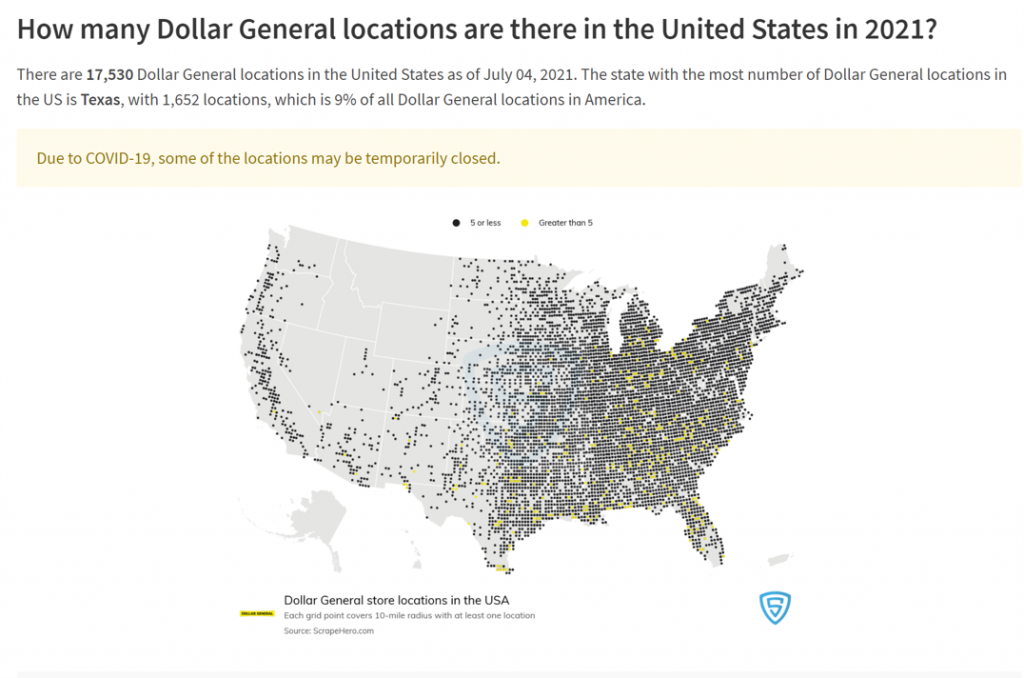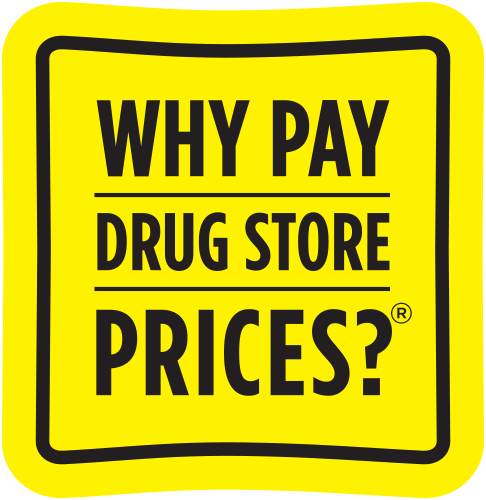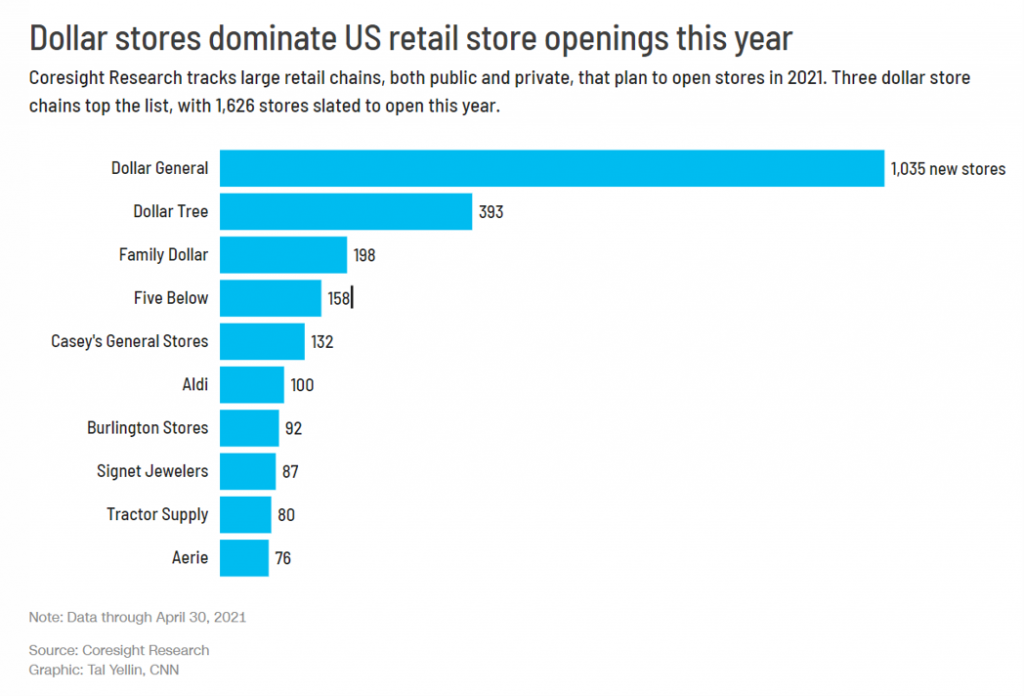“What if…healthcare happened where we live, work, play, pray and shop, delivering the highest levels of retail experience?” I asked and answered in my book HealthConsuming: From Health Consumer to Health Citizen. The chapter called “The new retail health” began with that “what if,” and much of the book responded with the explanation of patients evolving toward health consumers and, ultimately, health citizens empowered and owning their health and care.
 This week, Dollar General announced the hiring of its first Chief Medical Officer, Dr. Albert Wu. With that announcement, America’s largest dollar-store chain makes clear its ambitions to join a growing cohort of retail health destinations alongside CVS, Walgreens, and Walmart.
This week, Dollar General announced the hiring of its first Chief Medical Officer, Dr. Albert Wu. With that announcement, America’s largest dollar-store chain makes clear its ambitions to join a growing cohort of retail health destinations alongside CVS, Walgreens, and Walmart.
Here are a few key bullet points from DG’s press release that will give you a sense of what the largest dollar-store chain has up its health/care sleeve…
“Among other things, this will include an increased assortment of cough and cold, dental, nutritional, medical, health aids and feminine hygiene products across many of its Dollar General stores.”
 DG also echoes the retail pharmacy chain’s argument that they are ubiquitous with loads of consumers living near them. In DG’s case, they assert in the press release that, “With 75% of the U.S. population living within approximately five miles of one of Dollar General’s 17,000+ stores, the Company recognizes the unique access it provides to rural communities often underserved by other retailers as well as the existing healthcare ecosystem. The Company’s commitment to expanding its health offerings is underpinned by its existing infrastructure, robust supply chain and current complementary health and nutrition assortment.”
DG also echoes the retail pharmacy chain’s argument that they are ubiquitous with loads of consumers living near them. In DG’s case, they assert in the press release that, “With 75% of the U.S. population living within approximately five miles of one of Dollar General’s 17,000+ stores, the Company recognizes the unique access it provides to rural communities often underserved by other retailers as well as the existing healthcare ecosystem. The Company’s commitment to expanding its health offerings is underpinned by its existing infrastructure, robust supply chain and current complementary health and nutrition assortment.”
DG, the largest of all the dollar store chains operating in the U.S., emphasizes the role it sees to provide health options for rural Americans: “At Dollar General, we are always looking for new ways to serve, and our customers have told us that they would like to see increased access to affordable healthcare products and services in their communities,” according to Todd Vasos, Dollar General CEO. “Our goal is to build and enhance affordable healthcare offerings for our customers, especially in the rural communities we serve.”
DG hired Dr. Wu away from McKinsey & Company; he has designed health care delivery systems including a “total cost of care model” for 250,000 rural residents.
DG has joined other retail health providers in offering free COVID-19 testing; the dollar store collaborated with the Virginia Department of Health to do so.
 Health Populi’s Hot Points: I’ve been tracking the growing retail health ecosystem for over a decade, writing in 2009 about Costco’s envisioning “health care in every pot.” By noting “every pot,” I envisioned the democratization of health care access where we live, work, play, pray, learn and shop….such as at the grocery store, shopping center, or Big Box discounter like Costco or Walmart.
Health Populi’s Hot Points: I’ve been tracking the growing retail health ecosystem for over a decade, writing in 2009 about Costco’s envisioning “health care in every pot.” By noting “every pot,” I envisioned the democratization of health care access where we live, work, play, pray, learn and shop….such as at the grocery store, shopping center, or Big Box discounter like Costco or Walmart.
We began to notice dollar stores growing their health, beauty and wellness aisles of pain relievers, gut remedies, and vitamins over the past decade, and in the pandemic I even watched my local Wawa convenience store sprout kiosks of health and wellness barcodes and an expanding array of CBD-infused products to manage anxiety and stress. This began before the pandemic, but C-stores really grew retail space for health/care in 2020.
At the same time that convenience and dollar stores are growing their health and wellness offerings, the number of new off-price/discount retailers since the pandemic emerged is fast-expanding.
Nearly one-half of the 3,600 new stores that will open in 2021 will be dollar stores, according to Coresight Research. Dollar General along with open 1,035 new sites, Dollar Tree another 393 stores, and Family Dollar some 200 storefronts (note that Dollar Tree also owns Family Dollar).
 At the same time, nearly 3,400 retail stores will close in 2021.
At the same time, nearly 3,400 retail stores will close in 2021.
Whether dollar stores and their growing footprint will be well-placed to compete with the likes of retail pharmacy and the Big Box stores for health care services, we don’t yet know. Dollar General’s hiring of Dr. Wu and leveraging his experience would go to waste were the good doctor not to be fully utilized for health care beyond growing the retailer’s SKUs of over-the-counter products.
Nonetheless, for access to much lower-priced consumer health products and healthier food options, watch out. Dollar stores are serving millions of long-underserved consumers at very low prices and can cultivate a growing community of health consumers who are un- and under-insured.
